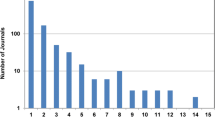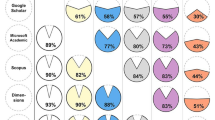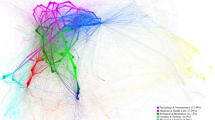Abstract
Since the 1990s, universities in South Korea have participated in an aggressive movement to globalize their institutions through the medium of English by hiring English-proficient faculty. To attain tenure, faculty must publish in international indexed journals (IIJs), which results in a de facto language policy of publishing in English because most IIJs require English. Requiring faculty to publish in IIJs yields consequences on several levels. For professors, who may or may not be proficient in English academic writing, they must find time to handle teaching and administrative responsibilities, in addition to navigating academic publishing within a limited time period. This policy also serves larger agendas, notably to boost a university’s international ranking. In this paper, we examine the publishing requirements at one of South Korea’s leading universities. We approach language policy through a critique of neoliberalism to uncover how these requirements are interpreted at this university. Based on analyses of university policy documents and interviews with faculty, our research demonstrates that in this climate of heightened competition, publishing in English is sustained by monetary incentives as it is instrumental in elevating a university’s status as a reputable center of knowledge production. These findings further perpetuate the neoliberal viewpoint that the continual upgrading of oneself and, in turn, the university, will be rewarded, while negating the value of one’s publications in languages other than English, including Korean.
Similar content being viewed by others
References
Abelmann, N., Park, S. J., & Kim, H. (2009). College rank and neo-liberal subjectivity in South Korea: The burden of self-development. Inter-Asia Cultural Studies, 10(2), 229–247.
Ammon, U. (Ed.). (2001). The dominance of English as a language of science: Effects on other languages and language communities. Berlin: Mouton de Gruyter.
Block, D., Gray, J., & Holborow, M. (2012). Neoliberalism and applied linguistics. London: Routledge.
Blommaert, J. (2005). Discourse: A critical introduction. Cambridge: Cambridge University Press.
Braine, G. (2005). The challenge of academic publishing: A Hong-Kong perspective. TESOL Quarterly, 39(4), 707–716.
Canagarajah, A. S. (2002). A geopolitics of academic writing. Pittsburgh, PA: University of Pittsburgh Press.
Canagarajah, A. S. (2005). Dilemmas in planning English/vernacular relations in post-colonial communities. Journal of Sociolinguistics, 9(3), 418–447.
Chen, K.-H., & Chien, S. (Hwang, T., Trans) (2009). Knowledge production in the era of neo‐liberal globalization: Reflections on the changing academic conditions in Taiwan. Inter-Asia Cultural Studies, 10(2), 206–228.
Emerson, R. M., Fretz, R. I., & Shaw, L. L. (1995). Writing ethnographic fieldnotes. Chicago: University of Chicago Press.
Fairclough, N. (2002). Language in new capitalism. Discourse and Society, 13(2), 163–166.
Flowerdew, J., & Li, Y. (2009). English or Chinese? The trade-off between local and international publication among Chinese academics in the humanities and social sciences. Journal of Second Language Writing, 18(1), 1–16.
Giroux, H. (2009). Neoliberalism, youth, and the leasing of higher education. In D. Hill & R. Kumar (Eds.), Global neoliberalism and education and its consequences (pp. 30–53). New York: Routledge.
Harvey, D. (2005). A brief history of neoliberalism. Oxford: Oxford University Press.
Irvine, J., & Gal, S. (2000). Language ideology and linguistic differentiation. In P. Kroskrity (Ed.), Regimes of language: Ideologies, polities, and identities (pp. 35–83). Santa Fe, NM: School of American Research Press.
Joongang Education Development Institute (JEDI). (2011). Korean university rankings 2011. http://www.jedi.re.kr/. Accessed October 10, 2011.
Kang, M. (2009). ‘State-guided’ university reforms and colonial conditions for knowledge production. Inter-Asia Cultural Studies, 10(2), 191–205.
Korean Citation Index (KCI). (2011). Background and purpose. http://www.kci.go.kr/. Accessed October 10, 2011.
Kroskrity, P. (2001). Language ideologies. In A. Duranti (Ed.), A companion to linguistic anthropology (pp. 496–517). Malden, MA: Wiley Blackwell.
Kubota, R. (2011). Questioning linguistic instrumentalism: English, neoliberalism, and language tests in Japan. Linguistics and Education, 22(3), 248–260.
Kumar, R., & Hill, D. (2009). Introduction: Neoliberal capitalism and education. In D. Hill & R. Kumar (Eds.), Global neoliberalism and education and its consequences (pp. 1–11). New York: Routledge.
Levin, R. C. (2010). The rise of Asia’s universities. In Seventh annual lecture of the higher education policy institute. http://opac.yale.edu/president/message.aspx?id=91. Accessed October 12, 2011.
Lillis, T., & Curry, M. J. (2010). Academic writing in a global context: The politics and practices of publishing in English. London: Routledge.
Macedo, D. (2003). Reclaiming the language of possibility: Beyond the cynicism of neoliberalism. In D. Macedo, B. Dendrinos, & P. Gounari (Eds.), Hegemony of English (pp. 109–143). Boulder, CO: Paradigm Publishers.
McNeill, D. (2011a). Internationalize or risk irrelevancy, college presidents tell Korean conference. Chronicle of Higher Education. http://chronicle.com/article/Internationalize-or-Risk/129685/. Accessed November 15, 2011.
McNeill, D. (2011b). After decades of building colleges, South Korea faces a lack of students. Chronicle of Higher Education. http://chronicle.com/article/After-Decades-of-Expansion/129896/ Accessed December 1, 2011.
Park, J. S. (2009). The local construction of a global language: Ideologies of English in South Korea. Berlin: Mouton de Gruyter.
Park, J. S. (2010). Naturalization of competence and the neoliberal subject: Success stories of English language learning in the Korean conservative press. Journal of Linguistic Anthropology, 20(1), 22–38.
Park, S. J. (2011). Educational manager mothers: South Korea’s neoliberal transformation. In J. Song (Ed.), New millennium South Korea (pp. 101–114). New York: Routledge.
Pennycook, A. (2000). English, politics, ideology: From colonial celebration to postcolonial performativity. In T. Ricento (Ed.), Ideology, politics and language policies: Focus on English (pp. 107–120). Amsterdam: John Benjamins.
Phillipson, R. (2006). Language policy and linguistic imperialism. In T. Ricento (Ed.), An introduction to language policy: Theory and method (pp. 346–361). Malden, MA: Blackwell.
Phillipson, R. (2008). The linguistic imperialism of neoliberal empire. Critical Inquiry in Language Studies, 5(1), 1–43.
Raduntz, H. (2005). The marketization of education within the global capitalist economy. In M. Apple, J. Kenway, & M. Singh (Eds.), Globalizing education: Policies, pedagogies, and politics (pp. 231–245). New York: Peter Lang.
Ricento, T. (2000). Ideology, politics and language policies: Introduction. In T. Ricento (Ed.), Ideology, politics and language policies: Focus on English (pp. 1–24). Amsterdam: John Benjamins.
Ricento, T., & Hornberger, N. (1996). Unpeeling the onion: Language planning and policy and the ELT professional. TESOL Quarterly, 30(3), 401–427.
Shi, L., Wang, W., & Xu, J. (2005). Publication culture of foreign language education journals in China. TESOL Quarterly, 39(4), 765–776.
Shin, J. C. (2009). Classifying higher education institutions in Korea: A performance-based approach. Higher Education, 57, 247–266.
Shin, K. (2011). Globalization and social inequality in South Korea. In J. Song (Ed.), New millennium South Korea (pp. 11–28). New York: Routledge.
Shohamy, E. (2006). Language policy: Hidden agendas and new approaches. London: Routledge.
Song, J. (2009). South Koreans in the debt crisis: The creation of a neoliberal welfare state. Durham, NC: Duke University Press.
Spring, J. (2008). Research on education and globalization. Review of Educational Research, 78(2), 330–363.
Tollefson, J. (2006). Critical theory in language policy. In T. Ricento (Ed.), An introduction to language policy: Theory and method (pp. 44–59). Malden, MA: Blackwell.
Author information
Authors and Affiliations
Corresponding author
Rights and permissions
About this article
Cite this article
Lee, H., Lee, K. Publish (in international indexed journals) or perish: Neoliberal ideology in a Korean university. Lang Policy 12, 215–230 (2013). https://doi.org/10.1007/s10993-012-9267-2
Received:
Accepted:
Published:
Issue Date:
DOI: https://doi.org/10.1007/s10993-012-9267-2




